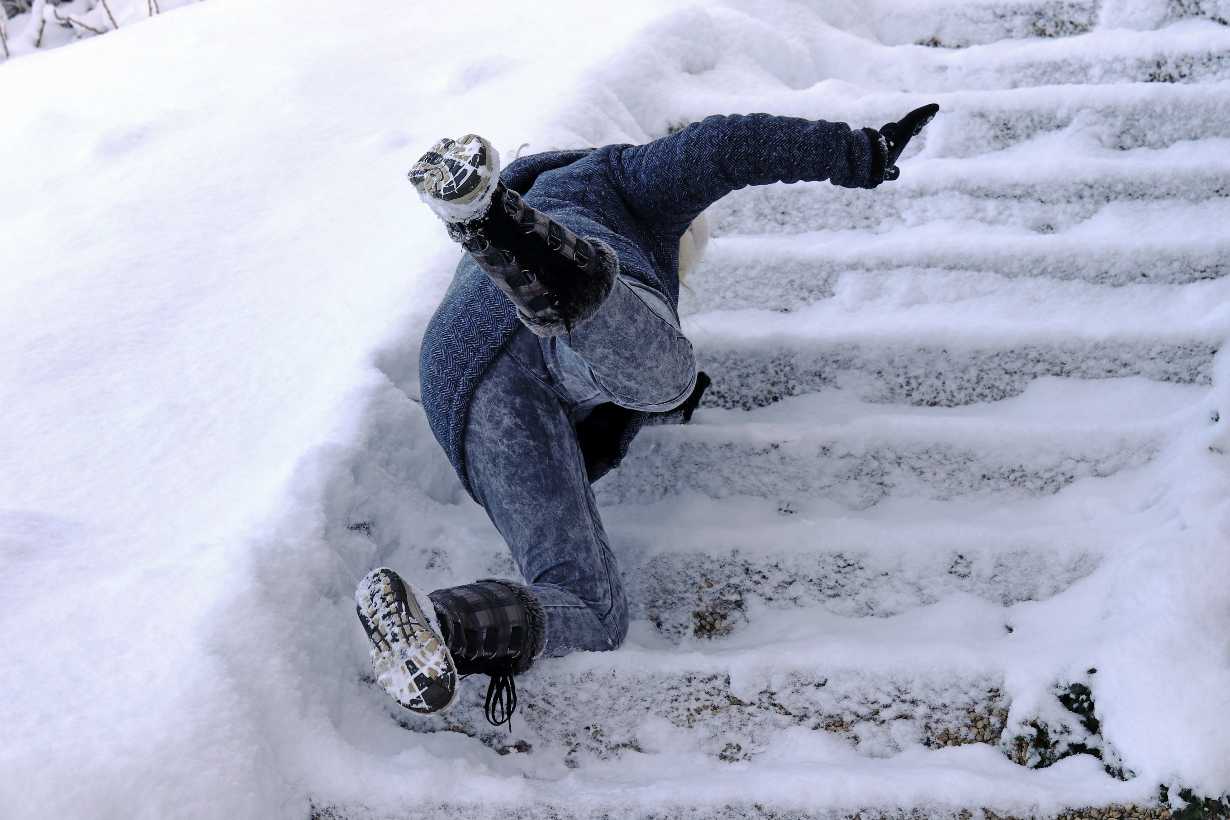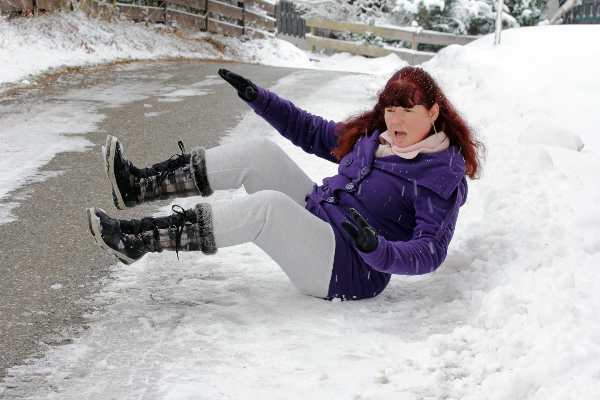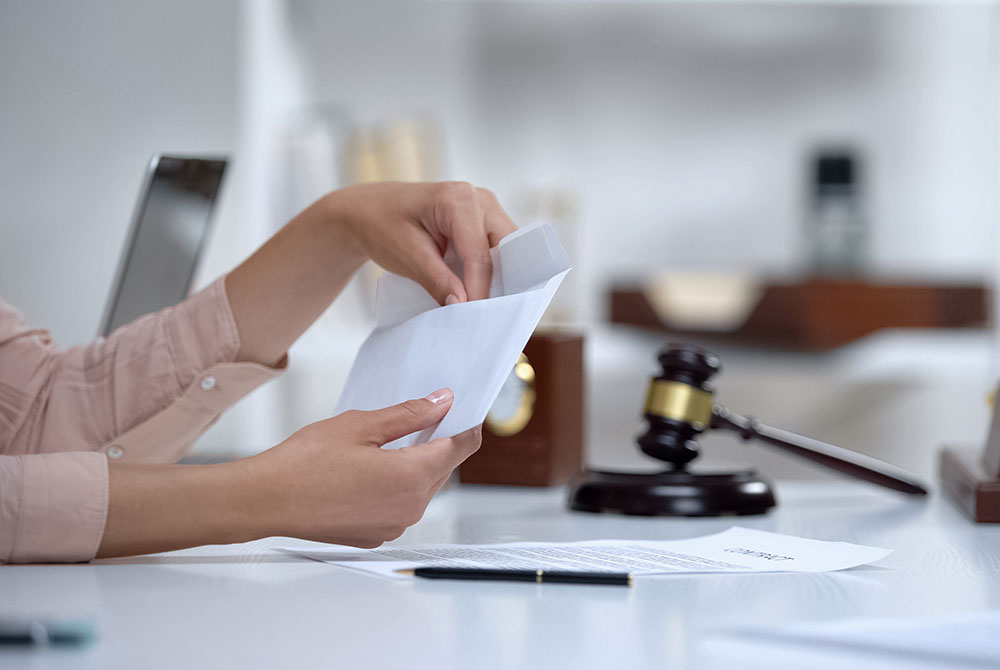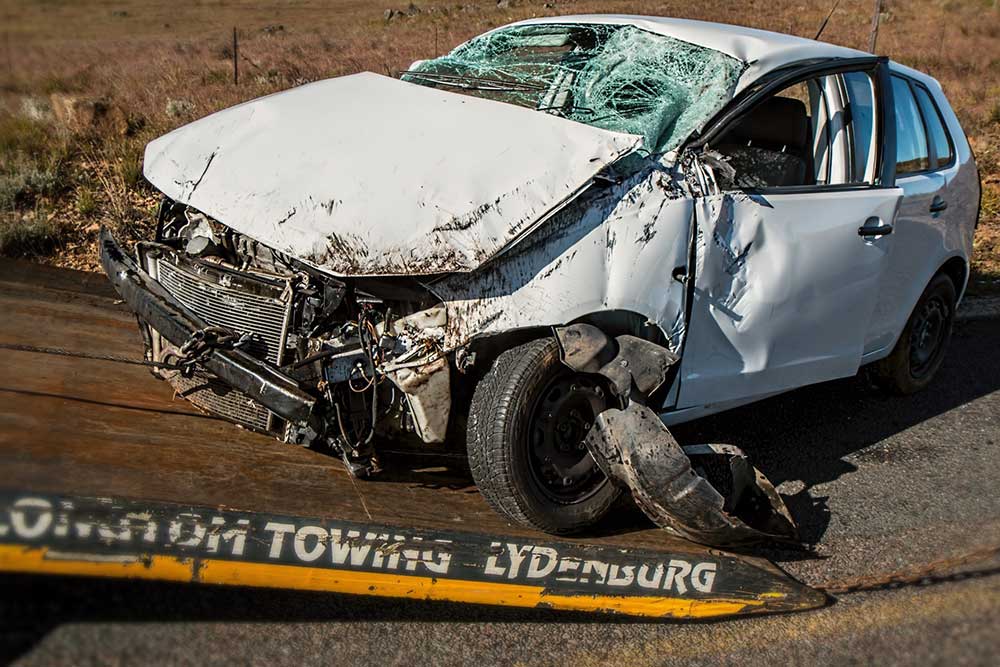
Slips and falls are a common occurrence, which is probably why people don’t take them seriously. After all, most people get through slips and falls with only a bruised arm and an equally bruised ego. However, slips and falls can be sources of significant injuries, depending on the situation and the terrain. Slipping on concrete is entirely different from slipping on ice.
What makes ice more dangerous? For one, our bodies often react instinctively to protect ourselves. When you sense that you are falling, you may reach out to grab hold of something. You may even extend your arms forward to lower the risk of injuries or twist your body to land more safely.
Slipping on ice is a different matter. Because ice is slippery, you don’t control how you land. Ice can increase the momentum of your fall so that your body doesn’t land flat on the ground but skids in a particular direction. Landing headfirst on ice also hurts more compared to dirt or even concrete. Emergency rooms have seen a handful of significant injuries from slips and falls on ice.
If you slip and fall on ice on your property, there isn’t much you can do about it except learn from it. However, if you slip and fall on ice on someone else’s property, you can file a personal injury claim and seek compensation.
Can You Sue if You Slipped and Fell on Ice?
As stated above, you can’t do much about slips and falls on ice on your property since your property is your responsibility. If you slipped on ice, this is probably due to your negligence. After a snowstorm, there is a natural accumulation of ice and snow, so it’s the property owner’s responsibility to remove traces of ice and snow to keep their property safe.
Of course, this also applies to property owners of other homes and commercial establishments. Suppose you slip and fall somewhere else because the property owner hasn’t taken reasonable care to clear the ice and snow. In that case, it is considered negligence on their part under the law of Premises Liability.
Premises Liability holds the property owner liable for any damages, injuries, and loss that transpires within their property. The law obligates all property owners to ensure that their establishment is reasonably safe for all. This does not only apply to the establishment itself; even areas like parking lots still fall under the owner’s responsibility. When it comes to slips and falls due to ice, this law means that property owners should:
- Remove ice and snow from their property to the best of their ability
- In instances where snow or ice hasn’t been cleared, property owners should at least put up warning signs
- Property owners should provide ample lighting in their establishments to provide customers or guests with enough visibility at night.
What You Should Do After Slipping on Ice
So what to do after a slip and fall incident on ice? Because people think slips and falls are no big deal, they don’t take the necessary steps after an incident to fully prepare for a personal injury lawsuit later on. Some laugh it off, only to find out later in the hospital that their injuries were worse than they thought, and they missed crucial steps in the process that could help them win their lawsuit.
Inform the Premises Owner Immediately
After falling and slipping on ice, most people would try to get up and act as if nothing had happened. If they feel well enough, they try to walk away to save themselves from further embarrassment. However, this is not the proper way of doing things.
After falling and slipping on ice on someone else’s property, the first thing you should do is inform the property manager. Ask for assistance from staff, workers, or managers. Inform the property owner that you slipped and fell on ice.
Seek Medical Attention
Medical records make the perfect documented evidence to show the court the extent of your injuries. Don’t belittle slips and falls. Some injuries are unnoticeable until much later. Go to a hospital and get yourself checked out.
Hire Legal Representation
Some people don’t file legal action, thinking that they might look like they’re being dramatic for hiring a lawyer for a simple fall. However, personal injury lawyers know better and would never belittle a case like this. Slips and falls on ice are potentially dangerous. Hiring a Revere personal injury lawyers as soon as possible allows you to get started with your claim immediately so you can focus solely on recovering.
Common Ice-Related Slip and Fall Injuries
The following are common ice slip injuries. You may be surprised that some are dangerous and potentially life-threatening.
While slips and bruises are common injuries seen in slips and falls, some falls have been known to cause significant head injuries, resulting in long-term hospitalization. Some cases even result in permanent disability and brain impairment.
Damages Awarded to Slip and Fall Victims

There are two types of damages awarded to slip and fall victims: economic damages and non-economic damages.
Economic Damages are damages that are quantifiable or those where monetary value is easily determined. Common examples are:
-
Medical Expenses
The injured party is compensated for any present and future medical treatments necessary for the patient’s recovery from injuries related to the incident.
-
Lost Wages
The victim is compensated for all income lost due to hospitalization or paralysis and disability resulting from the incident.
-
Punitive Damages
Punitive damages are sought where there’s proof that the property owner intentionally wanted to cause harm or injure their quests or customers.
-
Disability Benefits
Victims are eligible for disability benefits if they require long-term physical care before regaining full use of their bodies. This also applies to victims who have undergone sufficient medical care and are still rendered permanently disabled due to the extent of their injuries.
Non-economic damages are damages that can’t be quantified easily. A prime example of this is Pain and Suffering, which compensates the victim for the mental anguish they went through. There isn’t a mathematical equation that can easily assign a numeric value to how much pain and suffering the accident has caused you. The courts usually look at medical records and expert testimonies from doctors and therapists to determine how the accident impacted your mental well-being.
Hiring an Experienced Injury Lawyer
Slips and falls on ice are no joking matter. If you’re lucky, the incident can end with a few cuts and bruises, but remember that ice slips can cause even long-term disability in some cases. Property owners have a duty of care for their customers and guests, and sustaining injuries because of negligence or recklessness is unacceptable.
Here at Michael Kelly, our legal team of personal injury lawyers is well-versed in ice slips and falls. They will use their extensive knowledge in personal injury law to ensure that your rights are protected, and you get the compensation you deserve as a victim of someone else’s negligence.






